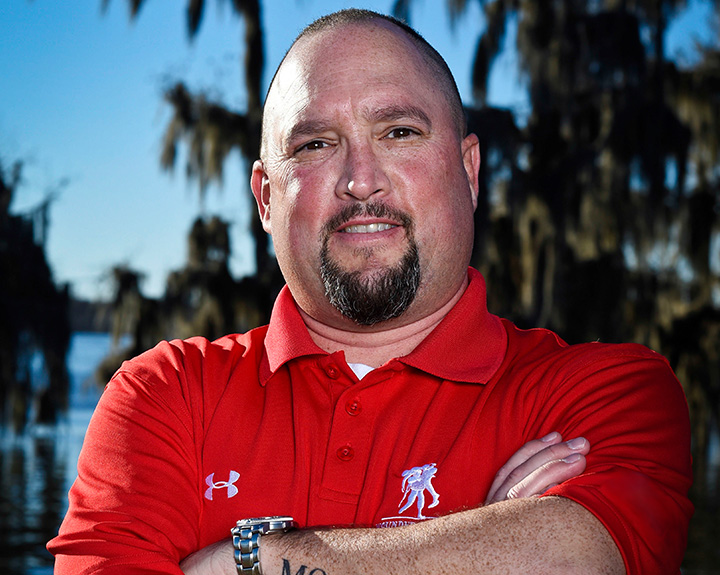

“Thanks to Wounded Warrior Project, I’m able to learn new ways to cope with PTSD and TBI by talking to other warriors who have the same issues.”
Deron Santiny
After a two-year stint in the U.S. Navy from 1988-90, Deron Santiny left to attend college. In 1994, while still attending classes, he felt the pull to re-enter the military, so he joined the National Guard as an infantry soldier. Ten years later, his guard unit deployed to Iraq.
In April 2005, after ten months in-country, Deron’s convoy was hit by an improvised explosive device (IED) while traveling south of Baghdad. Deron was the turret gunner on his Humvee, and the blast tossed him around like a rag doll.
“I wasn’t knocked out for long,” remembers Deron. “But when I woke up it felt like my head just exploded. It was the onset of a severe concussion, whiplash, ringing in the ears, and a headache. It wasn’t until later when doctors discovered I had a fractured neck, too.”
Since that day, Deron has had seven cerebral surgeries and close to 100 procedures on his head, neck, and spine. He was diagnosed with a traumatic brain injury (TBI) and also struggles with nightmares and other problems as a result of post-traumatic stress disorder (PTSD). His physical recovery resulted in a stretch of 16 months at Fort Polk in Louisiana, where Deron says there was very little support and almost no information for warriors who were recovering from injuries. Thankfully, when he got to Brooke Army Medical Center (BAMC) in San Antonio, Deron started regularly talking to a staff member from Wounded Warrior Project® (WWP).
“Wounded Warrior Project gave me an opportunity to take part in a few of the programs at BAMC to get me out and doing things, because I was shut in for a long time,” says Deron. “I didn’t want to go out and do things. I didn’t want to be around people.”
Deron stayed involved with WWP even after leaving BAMC and was eventually offered the opportunity to give back to other veterans as a Peer Support Group Leader. It’s a role he embraced, and which has become his new purpose in life. While he spends much of his time mentoring other veterans, he acknowledges that his role is a big part of his own continued recovery, too.
“I’m able to meet new people who can relate,” says Deron. “They’ve had the same things going on in their lives that I’ve had going on in my life. We take care of other. We look out for each other. And by taking part in events where I get to meet new people and explain my story, hopefully I can give them the hope and information they need to help them on their path to recovery.”